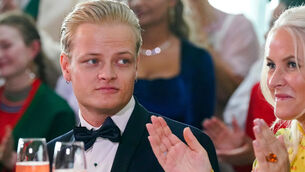‘I thought Jack Lynch was terrific’
IT’S a somewhat surprising admission from a staunch Fine Gael supporter, but maybe not from someone who described himself as a “tribal Corkman” in an RTÉ programme earlier this year.
“I thought Jack Lynch was terrific,” says Bill O’Herlihy.
















